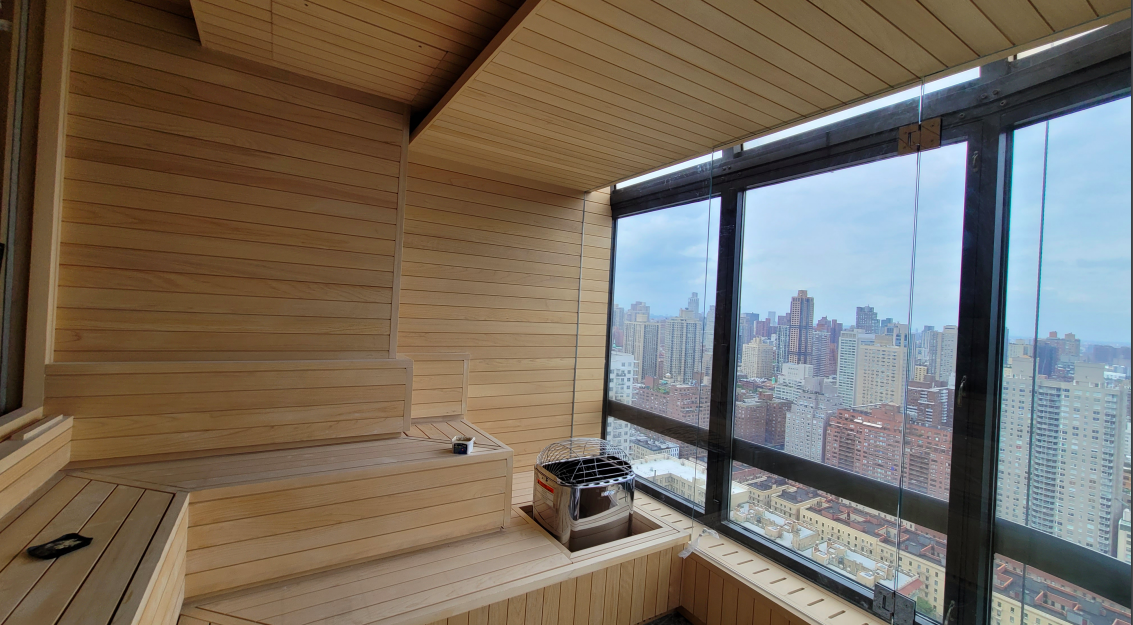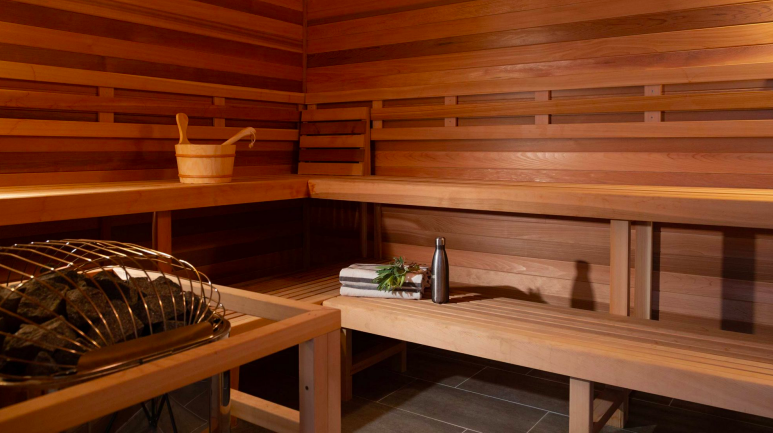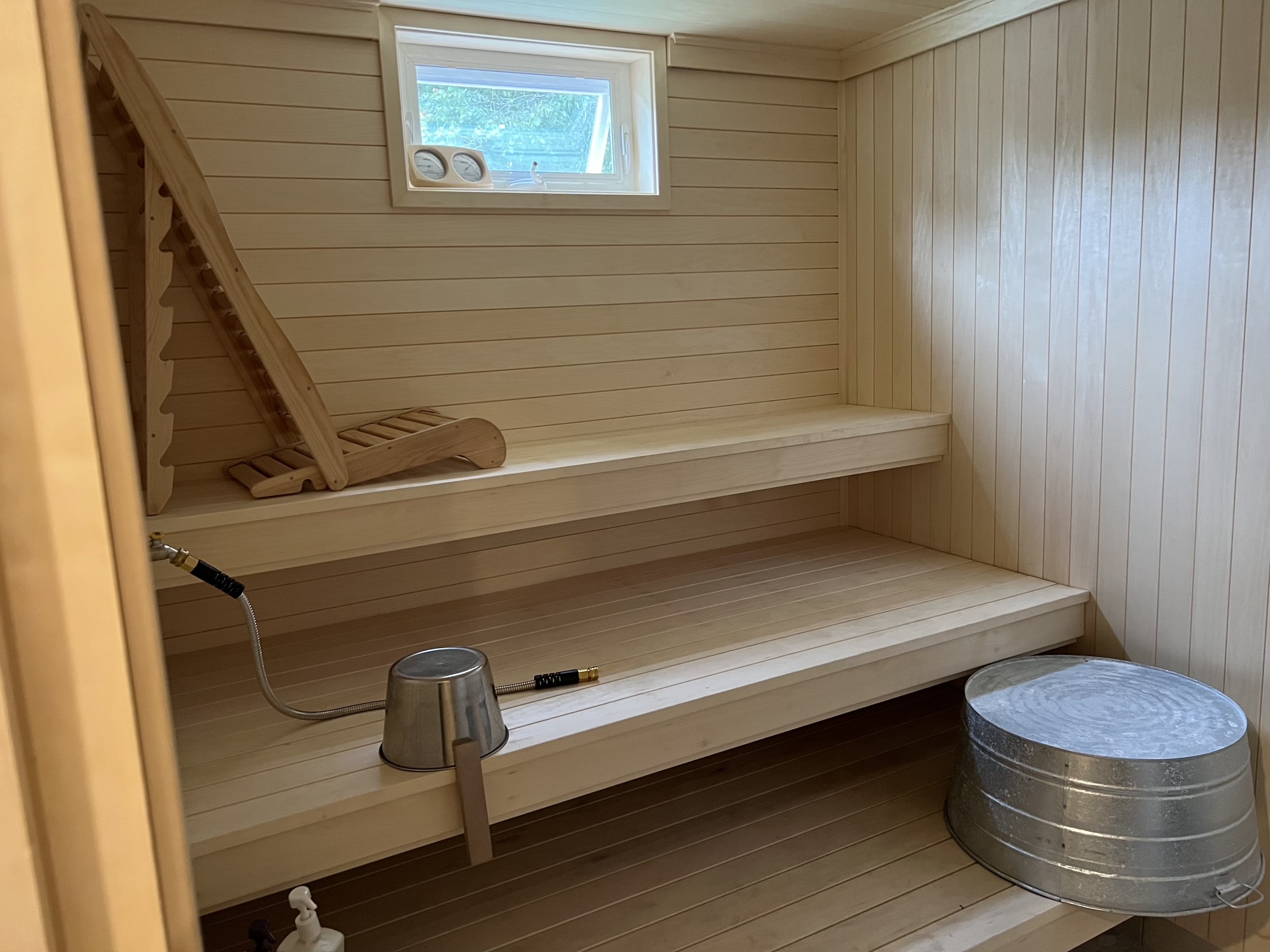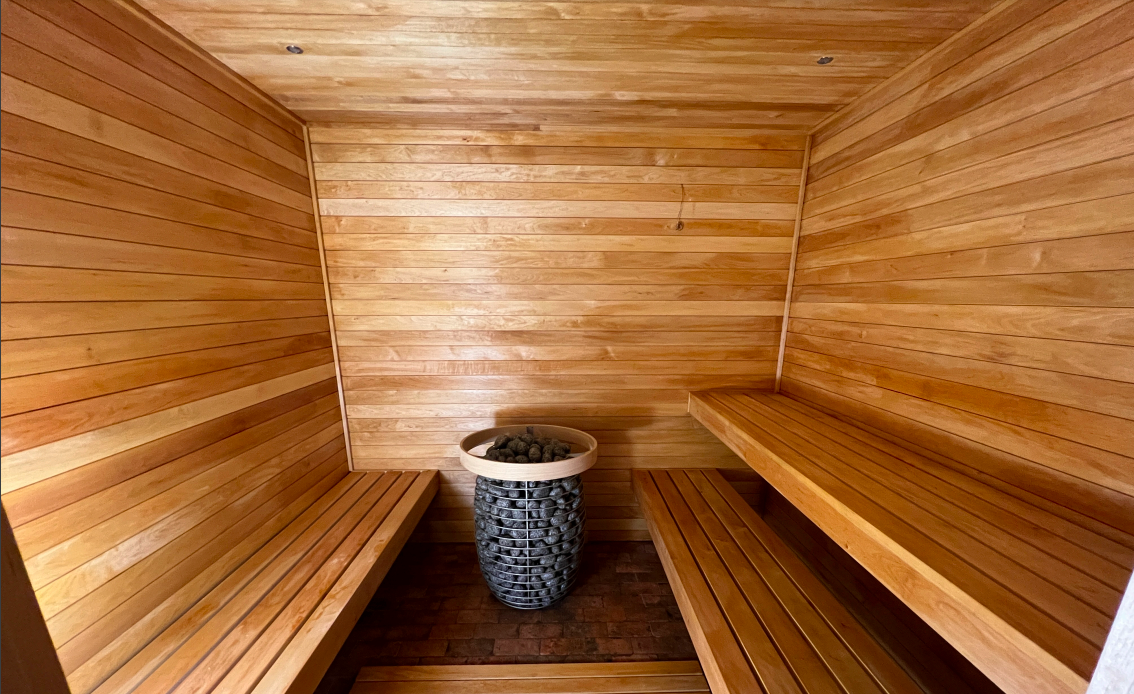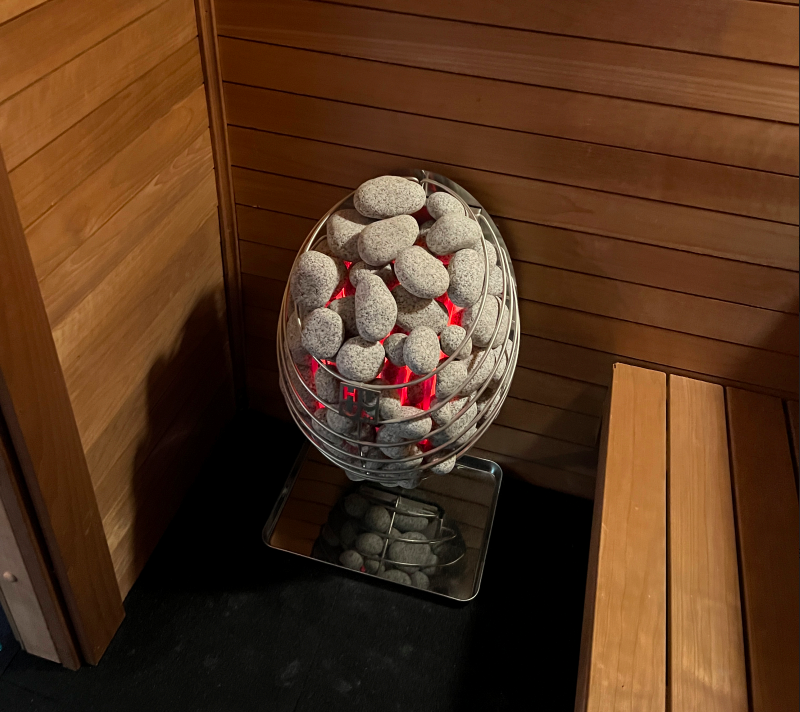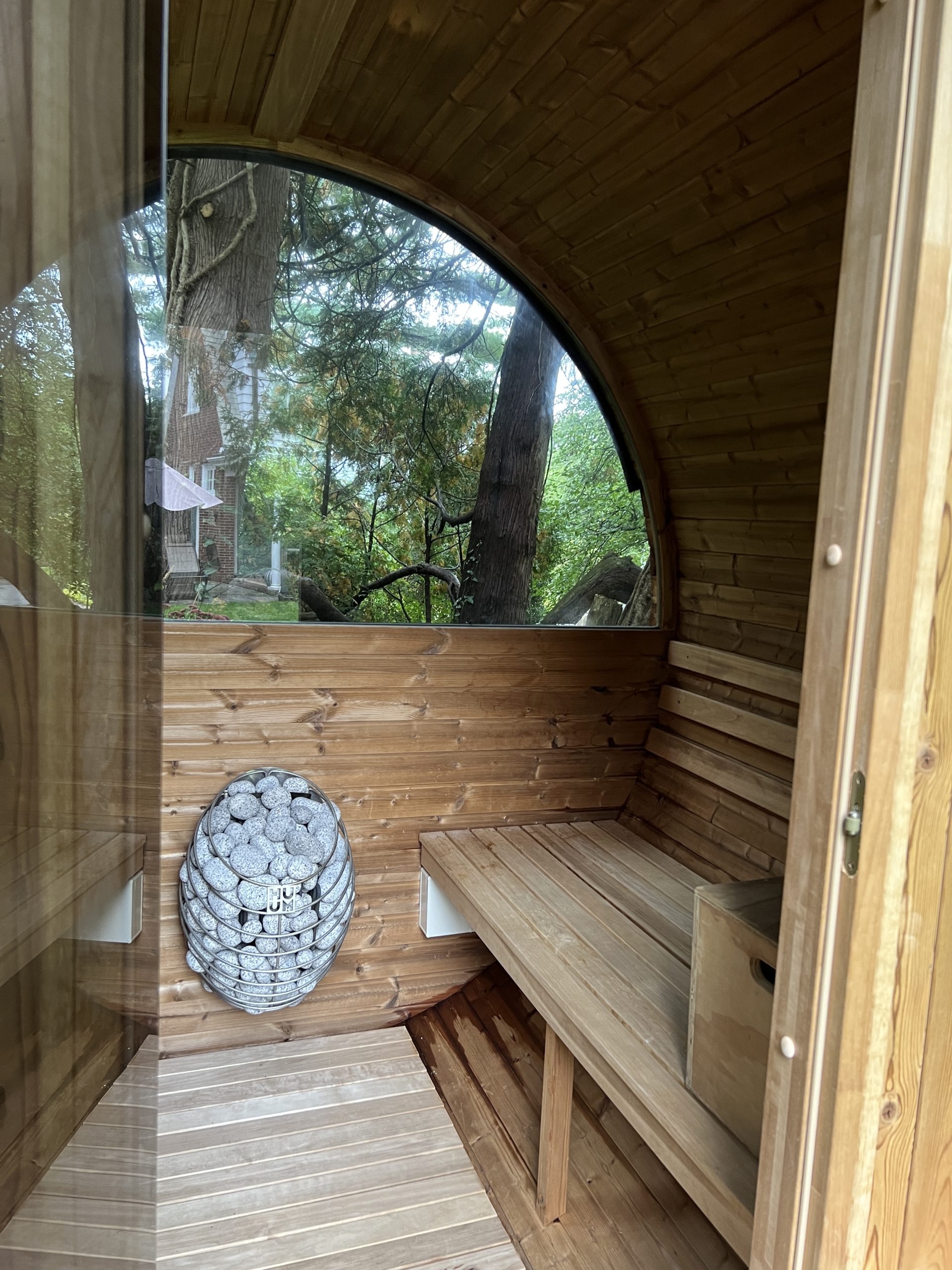Western Red Cedar (WRC) (Janka 350)
-
- Pros
- Has been the standard wood in the USA for decades – for a traditional feel
- Cedar is light and soft, so it doesn’t get very hot to the touch
- Natural resins in the wood provide rot resistance
- Nice, strong aroma at first which softens over time
- Cons
- Due to changes in forestry, WRC can have great variability in color from dark brown to light tan
- This wood has to be handled carefully because it can dent and scratch very easily
- The natural wood oils are carried with water and create water staining very easily
- The natural aroma can cause a problem for certain people with sensitivities
- Pros
Aspen (Janka 380)
-
- Pros
- Very light, even coloration can make an architecturally stunning look
- Looks great in a modern, open sauna with a lot of glass and artful lightin
- Cons
- The very light color can tend to pick up skin oils and discolor – we would recommend a bench mat to help keep the sauna clean
- Pros
Alder (Janka 650)
-
- Pros
- This wood has a very consistent brown coloration, very similar to your “average” piece of WRC.
- Alder is harder than cedar, and less likely to dent / scratch, making it more durable
- Cons
- The slightly harder characteristic of the wood can make it a bit warmer to the touch
- Care has to be used while installing to avoid splitting
- Pros
Thermal-modification (Janka varies)
-
- The thermal modification process can be used on aspen, pine, and other woods to give it some very unique qualities
- Thermal modification is a chemical-free process using heat and steam which makes the wood very dimensionally stable in changing environments and resistant to decay
Port Orford Cedar
